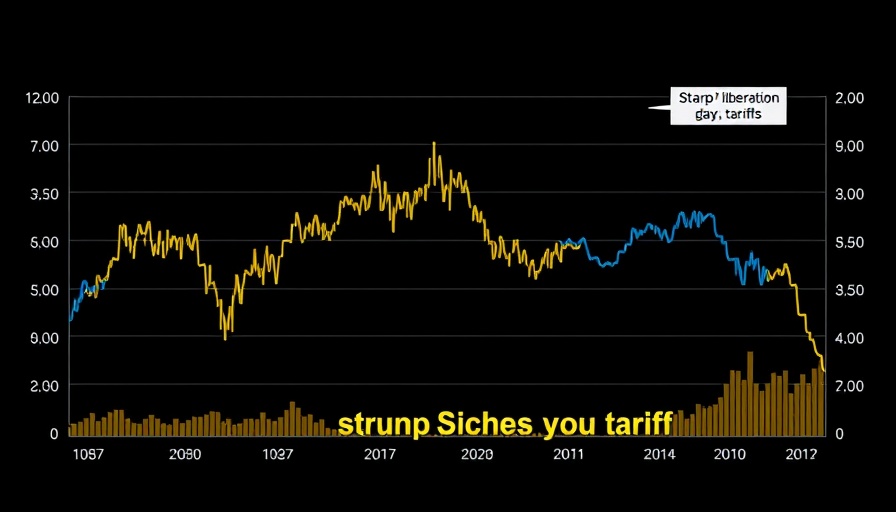
Understanding the Stock Market's Rapid Decline
In a shocking two-day span, US stocks have plummeted by an astonishing $5.4 trillion, a stark indicator of rising economic anxieties. The recent escalation of tariff threats from former President Trump has ignited fears of a looming recession, sending shockwaves through investor confidence. But what does this mean for franchisors and franchisees navigating today’s complex financial landscape?
How Tariffs Impact Franchise Operations
Tariffs imposed on imported goods can lead to higher costs for businesses, particularly in the franchise sector where many companies rely on foreign products for their offerings. Increased operational costs can squeeze profit margins, making it crucial for franchisors to consider how these tariffs can affect pricing strategies and supply chains.
For instance, if a fast-food franchise sources equipment from overseas, the added costs could force owners to either absorb those costs or pass them onto the consumer, potentially impacting customer demand and brand loyalty.
Lessons from Past Economic Crisis
Historically, economic downturns have profoundly affected franchise systems. The last major recession in 2008 saw widespread closures, especially in the retail and food sectors. Understanding the patterns from past crises is vital for today’s franchisors. They should evaluate their current operations and be proactive in adapting their strategies for potential economic shifts.
Future Predictions for the Franchise Sector
The predictions of a recession triggered by trade wars could reshape the franchise landscape. Experts indicate that franchises providing essential goods and services might fare better, as consumers prioritize necessities over luxuries in uncertain financial climates. Consequently, franchisors in sectors like healthcare and grocery might need to enhance their operational efficiency and brand consistency to thrive.
Creating a Resilient Franchise Network
Strengthening operational infrastructures is one way franchisors can prepare for economic volatility. By leveraging technology for greater efficiency, monitoring performance metrics, and ensuring compliance across locations, franchises can better withstand financial pressures. Implementing systems that allow for real-time data analysis can aid in making timely adjustments that keep businesses resilient amidst economic challenges.
Conclusion: Strategic Insights Moving Forward
As tariffs and trade tensions continue to create uncertainty, franchisors must remain vigilant and adaptable. Enhancing operational efficiency and being aware of market shifts will be essential for maintaining brand consistency and ensuring franchisee success. Now is the time to focus on strategies that strengthen your franchise’s foothold in the market and prepare for future challenges.
For those looking to navigate these tumultuous economic waters, consider a detailed review of your operational practices and how they might be optimized in light of current market conditions. These strategic moves could make a significant difference in maintaining the health of your franchise.
 Add Row
Add Row  Add
Add 






Write A Comment